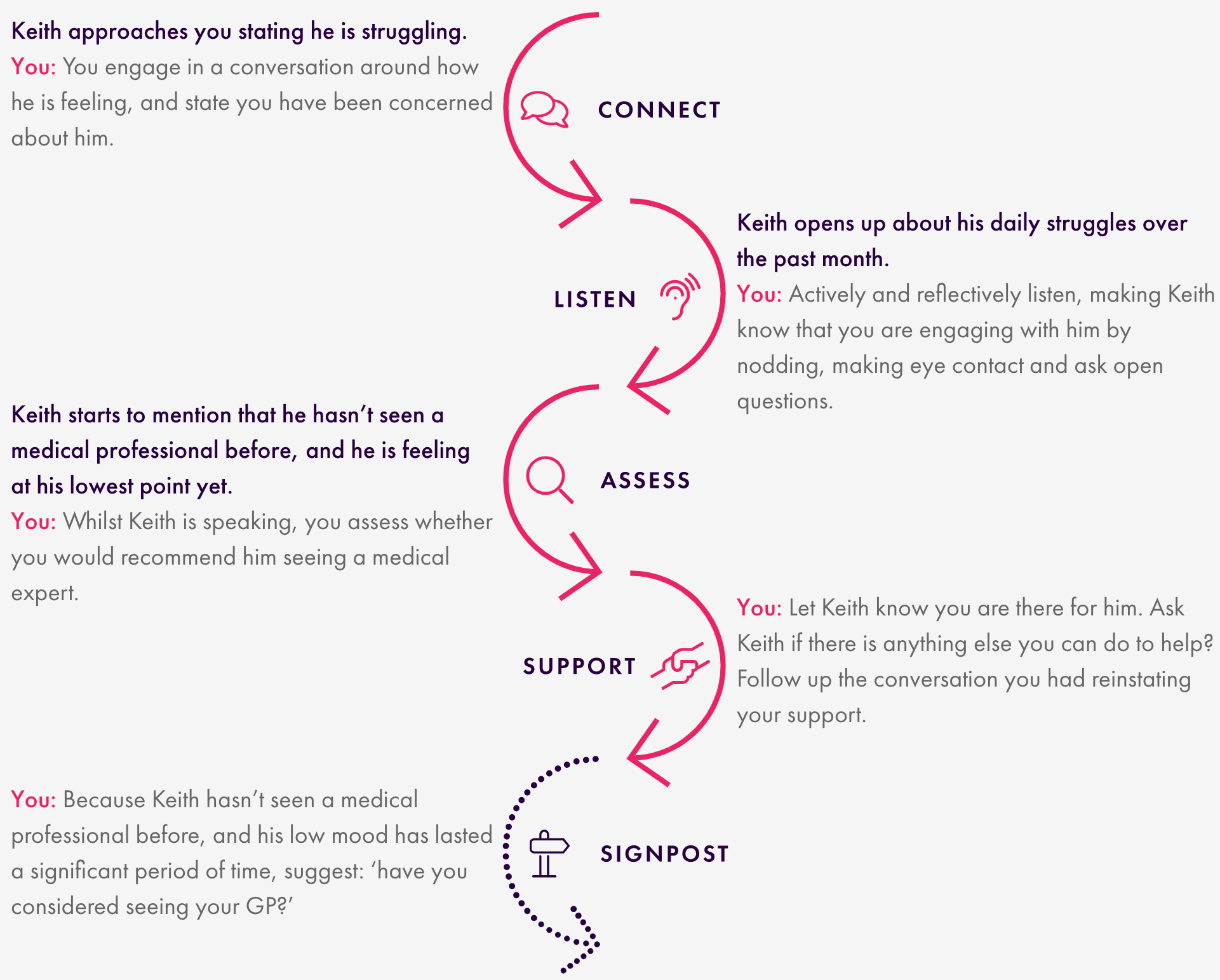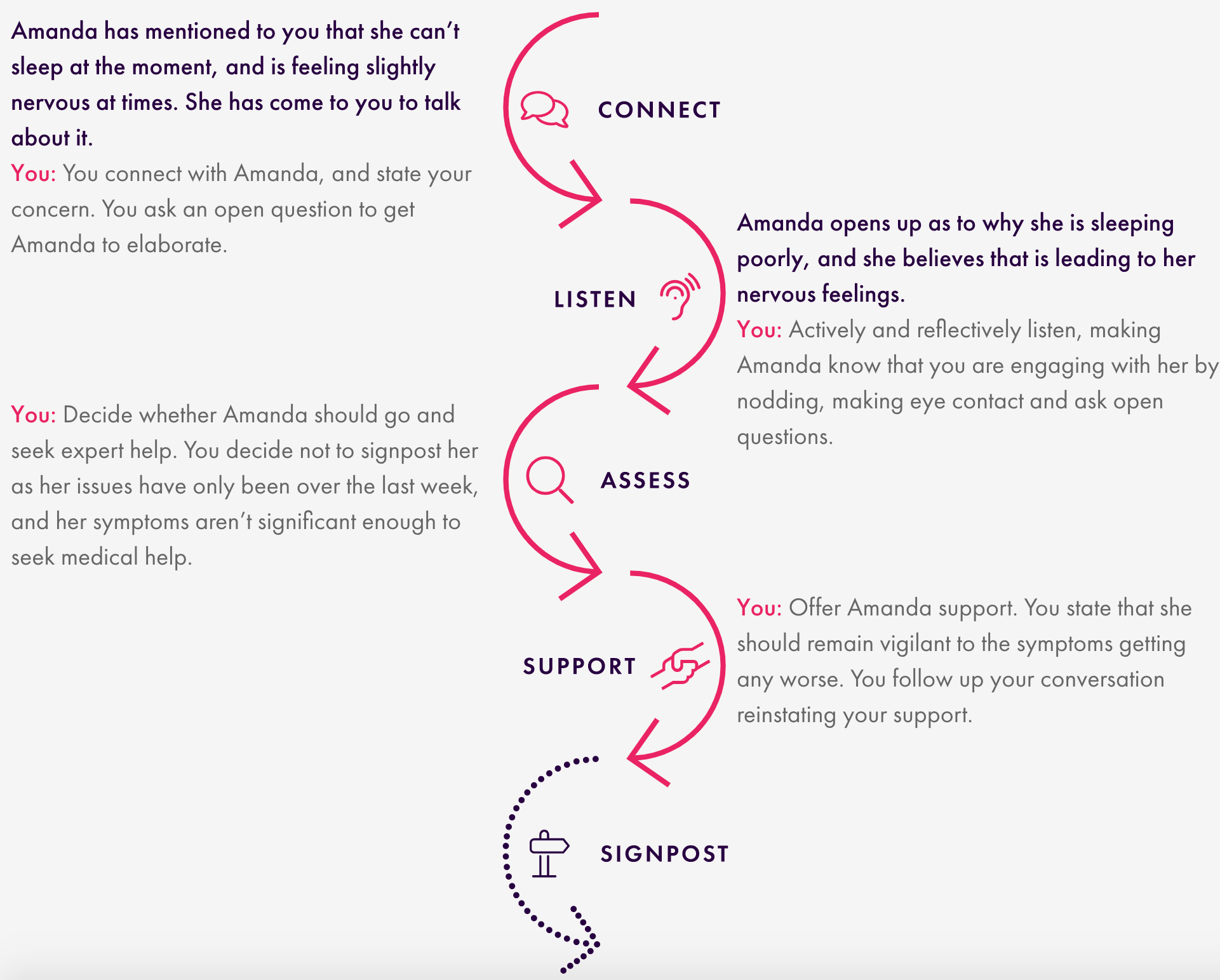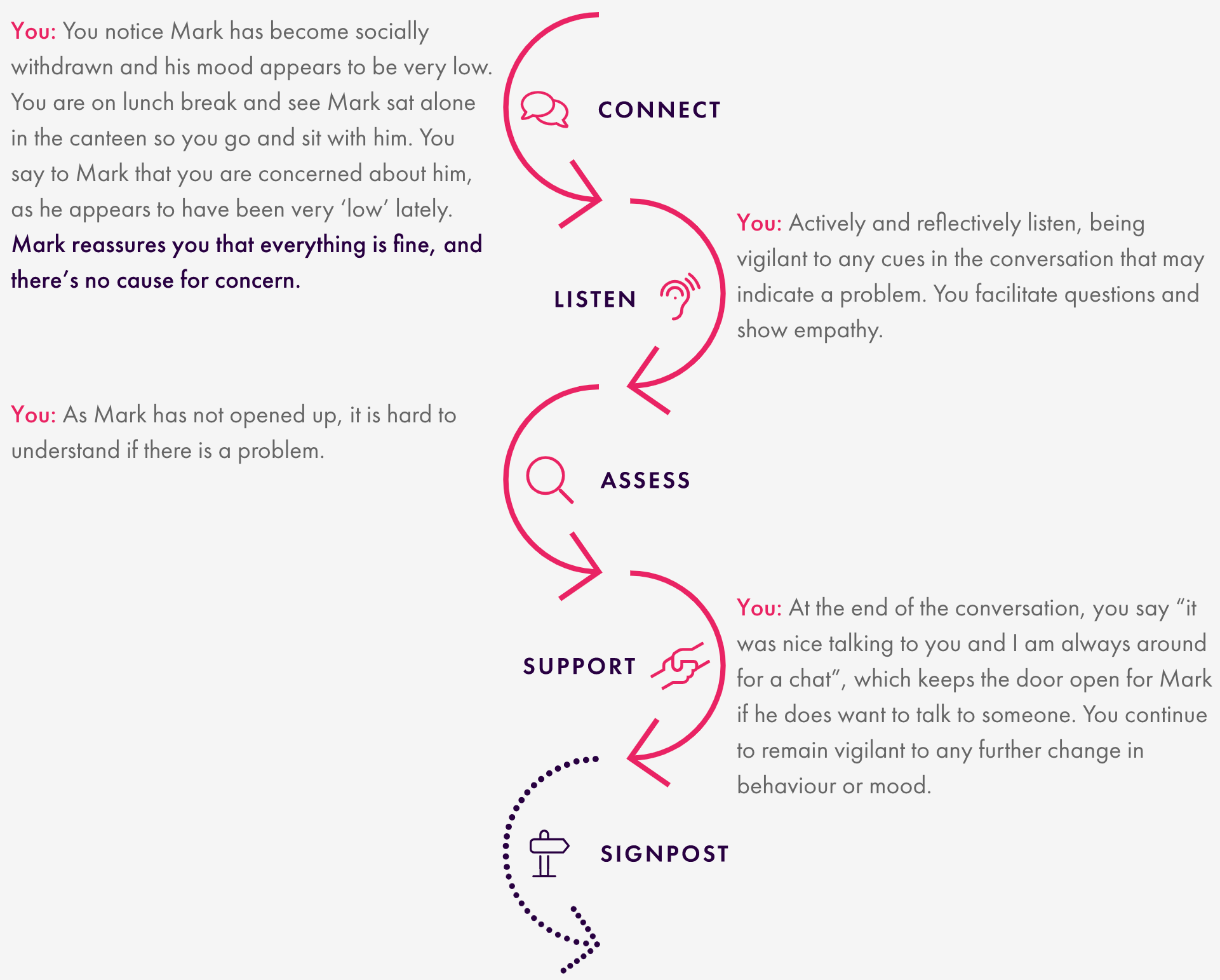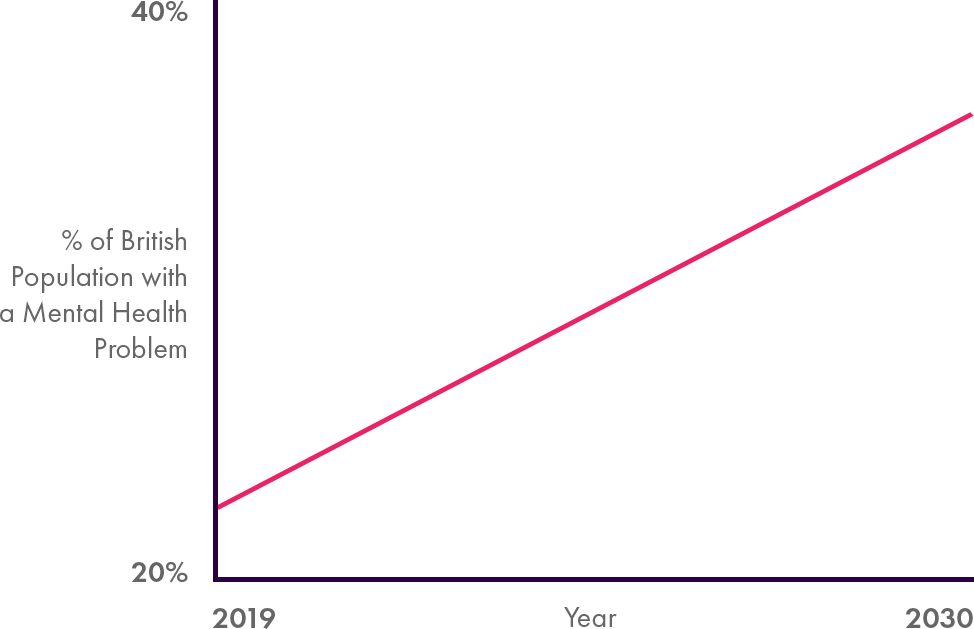The CLASS System™


Keith approaches you stating he is struggling.
You: You engage in a conversation around how he is feeling, and state you have been concerned about him.

Keith opens up about his daily struggles over the past month.
You: Actively and reflectively listen, making Keith know that you are engaging with him by nodding, making eye contact and ask open questions.

Keith starts to mention that he hasn’t seen a medical professional before, and he is feeling at his lowest point yet.
You: Whilst Keith is speaking, you assess whether you would recommend him seeing a medical expert.

You: Let Keith know you are there for him. Ask Keith if there is anything else you can do to help? Follow up the conversation you had reinstating your support.

You: Because Keith hasn’t seen a medical professional before, and his low mood has lasted a significant period of time, suggest: ‘have you considered seeing your GP?


Amanda has mentioned to you that she can’t sleep at the moment, and is feeling slightly nervous at times. She has come to you to talk about it.
You: You connect with Amanda, and state your concern. You ask an open question to get Amanda to elaborate.

Amanda opens up as to why she is sleeping poorly, and she believes that is leading to her nervous feelings.
You: Actively and reflectively listen, making Amanda know that you are engaging with her by nodding, making eye contact and ask open questions.

You: Decide whether Amanda should go and seek expert help. You decide not to signpost her as her issues have only been over the last week, and her symptoms aren’t significant enough to seek medical help.

You: You offer Amanda support. You state that she should remain vigilant to the symptoms getting any worse. You follow up your conversation reinstating your support.


You: You notice Mark has become socially withdrawn and his mood appears to be very low. You are on lunch break and see Mark sat alone in the canteen so you go and sit with him. You say to Mark that you are concerned about him, as he appears to have been very ‘low’ lately.
Mark reassures you that everything is fine, and there’s no cause for concern.

You: You actively and reflectively listen, being vigilant to any cues in the conversation that may indicate a problem. You facilitate questions and show empathy.

You: As Mark has not opened up, it is hard to understand if there is a problem.

You: At the end of the conversation, you say “it was nice talking to you and I am always around for a chat”, which keeps the door open for Mark if he does want to talk to someone. You continue to remain vigilant to any further change in behaviour or mood.
